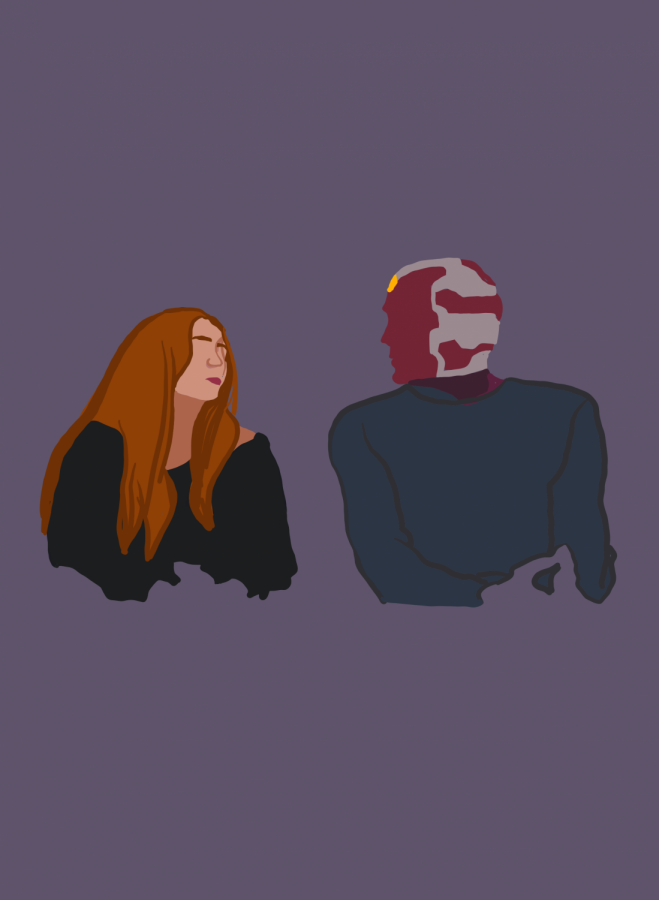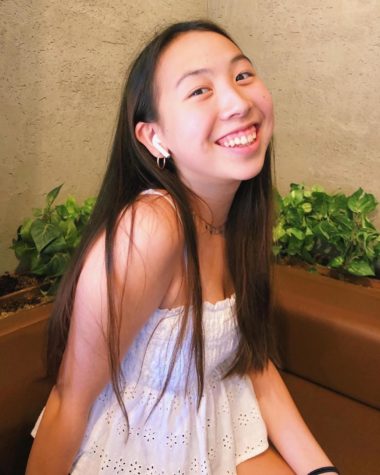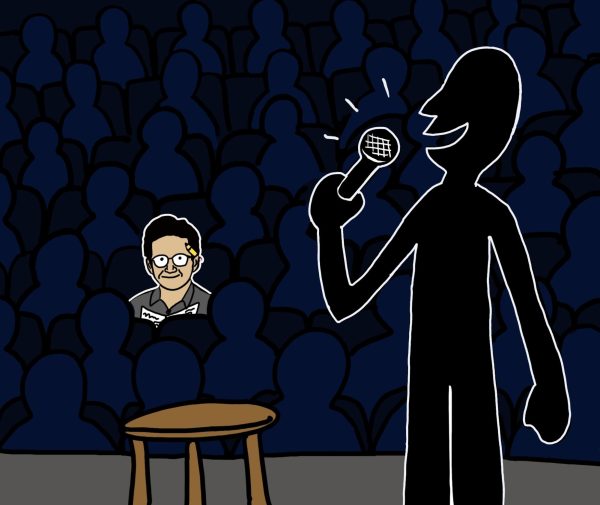WandaVision and what comes next for Marvel’s Phase Four
March 22, 2021
Warning: this article contains spoilers from Avengers: Endgame, Spiderman: Far From Home and WandaVision
In the spring of 2019, the finale of Marvel’s 12-plus year film series culminated in the box-office smashing film: Avengers: Endgame. On top of becoming the highest-grossing film to date, Endgame was highly praised for its music, emotion, special effects, acting and directing; earning a nomination for Best Visual Effects at the 92nd Academy Awards, a nomination for Special Visual Effects at the 73rd British Academy Film Awards and winning two out of three nominations at the 25th Critics’ Choice Awards. Although Endgame wrapped up the war against Thanos, it was clear there were many stories left to tell. The question remained: how would Marvel proceed after a 22 film saga?
WandaVision is the first Marvel series to be released in the wake of Endgame. The central figure in the series is the powerful witch Wanda Maximoff, played by Elizabeth Olsen. The story takes off a mere three weeks following Endgame where Wanda and her synthezoid boyfriend, Vision, played by Paul Bettany, live the sweet and simple life in Westview, New Jersey. One unique element of WandaVision is each episode is shot in the style of different, classic American sitcoms. The styles progress from the 1950s where Maximoff and Vision resemble I Love Lucy and The Honeymooners-esque, to the present day where the couple plays off shows like The Office and Modern Family.
“I love how the different intros to the episodes are like real intros to TV shows from that time period,” sophomore Safiya Blount says. “I also like how it is comedic and still has an air of mystery and intrigue.”
As the series continues, unsettling events prompt serious questions: How is Vision alive after his clear death in Avengers: Infinity War? Why does it seem like someone outside Wanda’s idyllic world is trying to contact her? Why does Wanda keep rewinding scenes the audience has just seen? Each episode builds on the storyline and as the pieces come together, the show reveals what’s real and what’s not. Throughout the weekly episode release on Disney+, fans like senior Mary Preza quickly jotted down developing theories faster than singing “Who’s been messing up everything?” a catchy tune “All Along” from Episode 7: “Breaking the Fourth Wall.”
“I’ve been looking at a lot of theories, and there was one about how Agatha wasn’t actually a villain, but trying to help Wanda figure out her powers in a really weird way by putting Wanda through her past traumas,” Preza explains.
Insider Marvel jokes and references to previous films are scattered throughout the series, appeasing Marvel fans. As WandaVision paves the way for the next phase of Marvel, fans and casual viewers alike eagerly await the release of upcoming content, furthering the storylines of many beloved characters like The Falcon, Winter Soldier, Spiderman, Loki and many more.
“I think WandaVision will make it easier for more heroes to have their own shows and turn in the spotlight independent from the franchise’s bigger characters,” Blount comments.
In addition to the progression of certain characters, Marvel plans to introduce more independent films like Eternals, Shang-Chi and the Legend of the Ten Rings and Blade indicating a possible transition out of The Avengers MCU timeline or heading down a new path in a direction Marvel audiences have not seen before. Nonetheless, fans are kept on their toes as they await a new generation of heroes.
“I think this is Marvel’s best time to start experimenting and branching out of the Avengers timeline by finishing it, and WandaVision is a great way to transition out of that verse and go in a new direction with the possible multiverse,” junior Oliver Richard says.
Originally, Marvel’s Black Widow was to be the first content of Phase 4, but due to COVID-19, the release was delayed twice, with the current date set for May 7, 2021. Although many fans were excited to look into the past of the tragically deceased Avenger, Natasha Romanoff (Scarlett Johanson), Disney+ has certainly made it easier for fans to watch previous Marvel content from the comfort of their own homes. Part of WandaVision’s success can be attributed to the release onto this streaming platform as easy accessibility has allowed fans like Richard to stay hooked and up to date.
“Disney+ makes it so much easier to watch more Marvel. It is so nice to have all of those movies right there where I am able to watch them whenever I can.” Richard says.
One reason that this show has meant so much to people is that it captures part of the reality that many have been living during the pandemic.
“I have been very grateful to have Disney+,” freshman Sofia Harper says.
Isolation, uncertainty, and grief are something many viewers can relate to, and Wanda manifests her grief from losing loved ones into this false reality. While we may not have the powers of the Scarlet Witch, many also deny unsettling situations—from fights with friends to the year-long plague. WandaVision as a whole portrays grief as a journey toward acceptance, as Wanda, as well as Vision himself, tries to grasp the reality of losing the life they once knew and loved. Vision, in perhaps the most intimate scene of the show, says, “it can’t all be sorrow, can it? I’ve always been alone, so I don’t feel the lack. It’s all I’ve ever known. I’ve never experienced loss because I’ve never had a loved one to lose. But what is grief, if not love persevering?” This impactful line speaks to the recurring theme that love will survive even though we will not.
While the future of the MCU is still unknown, WandaVision’s success shows Avengers: Endgame will not overshadow Marvel’s new phases.
In its own right, WandaVision is mysterious, humorous—“It’s a fun show,” says Harper—and great entertainment for fans during a chaotic time. So whether future projects appear on the silver screen or the TV screen, it will be exciting and riveting to see what Marvel’s got next.






















